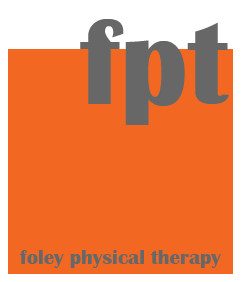|
This article from January 19th Washington Post discussed the status of the James Webb telescope as it settles in to a resting place in space to begin sending images of the past, present. "The Earth-sun orbital relationship produces 5 Lagrange Points which scientists have numbered L1 through L5. Placing the telescope at L2 — in line with the Earth and Sun, where the telescope’s large shield can protect it from their glare and heat — will allow it to look farther, while also keeping its sensitive instruments at the super-cold temperatures they need to operate". Makes me wonder how people cannot be fascinated and extraordinarily in debt to all those minds who have studied and then proven and disproven, bit by bit, what we thought we knew about our world. From believing it flat to proving it's not and so very far beyond that 16th C assumption. But then I remember the world we've been living in for the past nearly 3 years. And it takes me to something I often say to patients who aren't fully committing to their rehabilitation. There is a time and a place for skepticism and questioning, but it doesn't make one smarter to simply doubt the information at hand. Patient skepticism about information in healthcare was already ramping up before the pandemic. Thanks to Doctor Google and countless adjacently trained health coaches and influencers we've embraced a world of rampant distrust, experiential advice giving ("this worked for me, you should try it") and general misinformation, misapplication and misunderstanding. Meanwhile we've come to an incredible scientific era where we can have a telescope effortlessly maintaining its orbit between 2 calamitous gravitational forces by studying, theorizing, failing and testing another new theory. Part of testing that theory, and this is the important part in rehabilitation and the present world at large, is not just doubting the current information! I believe as far as 4th century B.C people thought the earth might not be flat, but they had no way to test that. It doesn't make one an "unconventional thinker" to simply doubt common thought, it just means you have an opinion different than the commonly held one. This is much of the armchair science of the last 3 years, take masks, vaccines, all of it...please! But we have some folks feeling they're a "special kind of intelligent" for simply not going along with the best current thought. What the important part is, is having an alternate theory and NOT simply proving the alternate theory with responsible, tested evidence...but disproving the original theory first, with responsible, tested evidence. See. That hurts your brain. But listen, if we thought the earth flat, then thought it round, the goal is to first prove it's not flat...cause it might be square, cylindrical, hexagonal, or round....but first prove it's not flat! Then the supporting evidence or subsequent experiment can have more power. Without disproving what is called the null hypothesis...proving that what we already believe is not right, we cannot put forth the next likely solution, because otherwise we're just guessing, persuading, opining, not proving, anything. Persuasion and speculation are not what we want holding our million dollar camera in orbit. So to bring this back home. When the patient says "this surgery isn't working" we need to do more than just say that, we need to disprove the belief that the surgery worked. The surgery was designed to do X, let's say make the knee bend better for function. Now we need to first prove the knee doesn't bend. The surgeon bent it during surgery to 120 degrees, it's in her notes, you cannot bend it more than 80. Hmm so, the knee bends it's just gonna take more work for you to do it. When the doctor prescribes medications and the patient declines to try them at the prescribed clinical dose, they aren't disproving anything - just not participating. The point of all this is to say, merely doubting, merely guessing, veering off the given path are not signs of intelligence and they don't serve a purpose if you're trying to solve something. It takes intelligence to believe in, participate in and prove or disprove the current thought with a methodical process. Understand what the original theory actually is, set about to show it is or is not occurring. But merely just showing that there could be other theories might make you a creative thinker, but it doesn't make you smarter and it certainly isn't the kind of higher level problem solving that puts a telescope delicately in a wedge of space between the earth and sun. Comments are closed.
|
Author:
|
Proudly powered by Weebly


 RSS Feed
RSS Feed